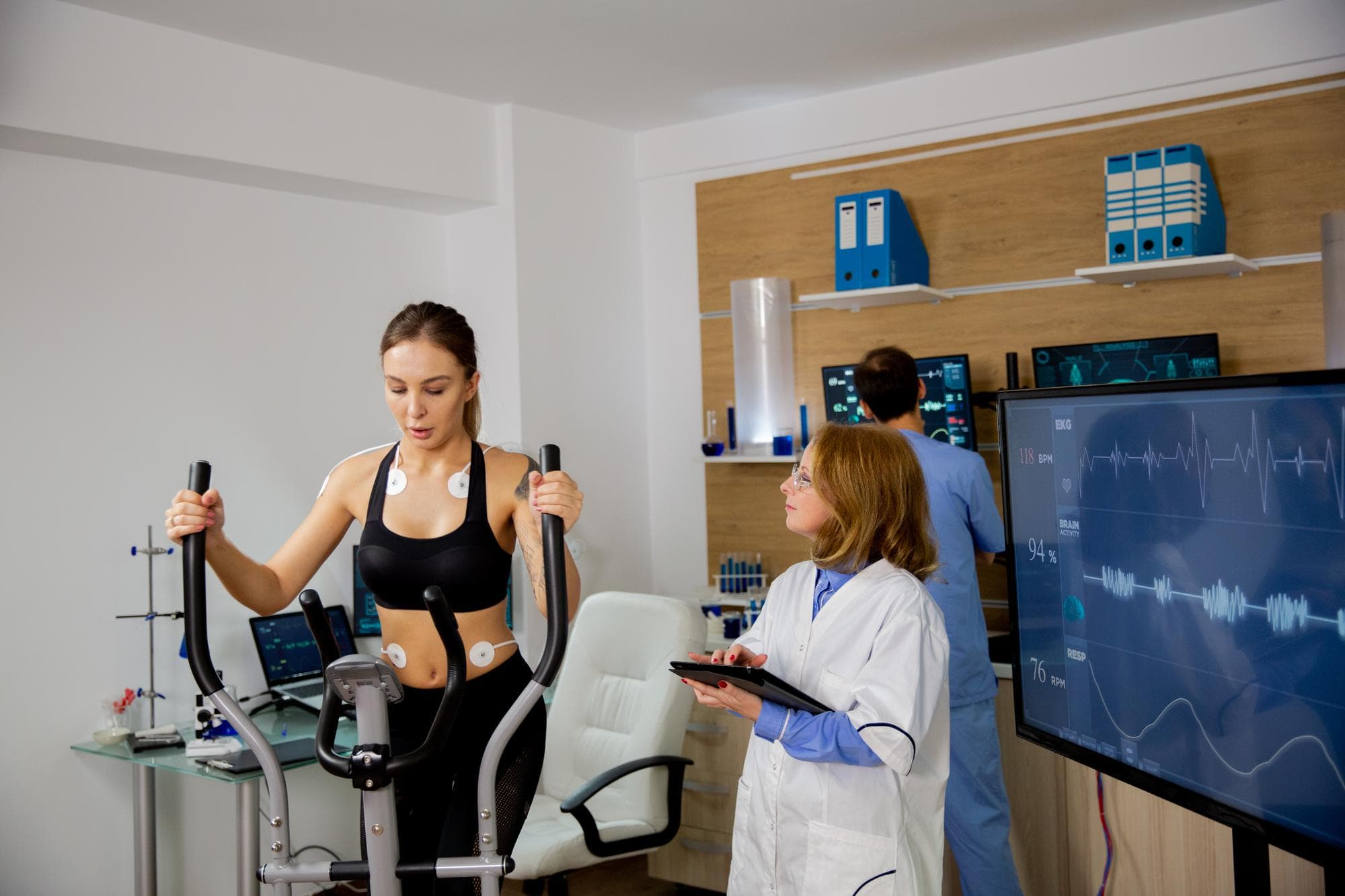Nov 12, 2025
Signs You Need a Stress Test

THIS WEBSITE DOES NOT PROVIDE MEDICAL ADVICE. The content included on this website is for informational and educational purposes only. Always consult with your healthcare provider regarding any medical condition and before starting any healthcare or medication regimen.
Introduction
Your heart health is crucial, and a stress test is a valuable tool that helps evaluate how well your heart functions under exertion. This test is often used to diagnose conditions like coronary artery disease, arrhythmias, and other cardiovascular issues. But how do you know when you need a stress test? In this article, we will discuss the key signs that indicate the necessity of a cardiac stress test, its benefits, and how to prepare for one.
Discover the best prices on medications and get access to free instant savings coupons for your local pharmacy using our prescription discount card. No insurance or sign-up is necessary.
What is a Stress Test?
A stress test measures how your heart performs during physical exertion. It helps doctors determine if your heart is receiving enough blood flow and oxygen when working harder. The test is typically done by having you walk on a treadmill or ride a stationary bicycle while monitoring your heart rate, blood pressure, and electrical activity. For those unable to exercise, a chemical stress test uses medication to stimulate heart activity.
Key Signs You May Need a Stress Test
1. Chest Pain or Discomfort (Angina) One of the most common reasons for a stress test is experiencing chest pain, especially during physical activity. Angina occurs when your heart muscle doesn’t get enough oxygen-rich blood, which can be a sign of blocked or narrowed arteries.
2. Shortness of Breath (Dyspnea) If you frequently feel out of breath even with minimal exertion, it may indicate underlying heart disease. A stress test can assess whether this symptom is related to cardiovascular problems or another medical condition.
3. Irregular Heartbeat (Arrhythmia) A fast, slow, or irregular heartbeat could be a sign of arrhythmia. A stress test can help identify whether your heart rhythm changes under physical stress.
4. Dizziness or Lightheadedness Frequent dizziness or episodes of lightheadedness, particularly during activity, can indicate poor blood flow to the brain caused by cardiovascular issues.
5. Fatigue and Reduced Exercise Tolerance If you find yourself getting tired easily or unable to perform physical activities you once could, it may be a sign of underlying heart conditions. A stress test can help evaluate if your heart is struggling to meet your body’s demands.
6. High-Risk Occupations People in high-risk professions, such as pilots or professional athletes, often undergo stress testing as part of their routine medical evaluations.
7. Monitoring Heart Disease Progression If you have already been diagnosed with heart disease, a stress test can help assess the effectiveness of your treatment plan and whether adjustments are needed.
8. Pre-Surgical Evaluation Before undergoing major surgery, especially non-cardiac procedures, doctors may recommend a stress test to evaluate your heart’s ability to handle the stress of surgery.
Types of Stress Tests
1. Exercise Stress Test
This is the most common type, where you walk on a treadmill or cycle while being monitored.
2. Stress Echocardiogram
Combines ultrasound imaging with exercise stress testing to evaluate how well your heart pumps blood.
3. Nuclear Stress Test
Uses a small amount of radioactive material to produce detailed images of blood flow to the heart at rest and during stress.
4. Pharmacologic Stress Test
For those unable to exercise, medication is used to simulate the effects of physical activity on the heart.
How to Prepare for a Stress Test
Avoid eating or drinking for at least four hours before the test.
Do not consume caffeine for at least 24 hours before the test.
Wear comfortable clothing and sturdy walking shoes.
Follow your doctor’s instructions regarding medications.
If you have diabetes, discuss your meal and medication plan with your doctor beforehand.
The Importance of Early Detection
A stress test can be a lifesaving diagnostic tool. Identifying heart disease early allows for timely intervention, potentially preventing severe complications like heart attacks. If you experience any of the symptoms mentioned, consult a healthcare provider to determine if a stress test is right for you.
Conclusion
Recognizing the signs that you may need a stress test is an important step in protecting your heart health. Early detection of cardiovascular issues can lead to timely treatment and better long-term outcomes.
If you’re concerned about the cost of cardiac care, remember that a prescription discount card can help lower the cost of medications. Visit CareCard to explore savings on prescriptions and healthcare services — because taking care of your heart shouldn’t come at a premium.
FAQ
What happens during a stress test?
A technician will monitor your heart rate, blood pressure, and oxygen levels while you walk on a treadmill or receive medication to stimulate exercise conditions.
How long does a stress test take?
A basic stress test usually lasts about 10-15 minutes, but more detailed tests like nuclear stress tests can take up to three hours.
Is a stress test painful?
No, but you may feel tired or short of breath during the test. Some people experience mild discomfort from the electrodes attached to their chest.
What if I cannot exercise?
If you’re unable to exercise, a pharmacologic stress test can be done using medication to stimulate heart activity.
How accurate is a stress test?
While a stress test is highly useful, it is not 100% definitive. In some cases, additional testing may be required to confirm a diagnosis.
Can I drive home after a stress test?
Yes, unless you’ve received sedative medication, in which case you should arrange for someone to drive you home.
How often should I get a stress test?
It depends on your risk factors and medical history. Your doctor will determine if and when you need one.
